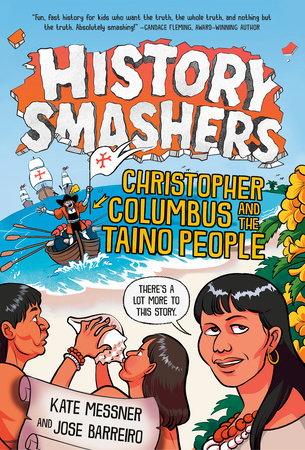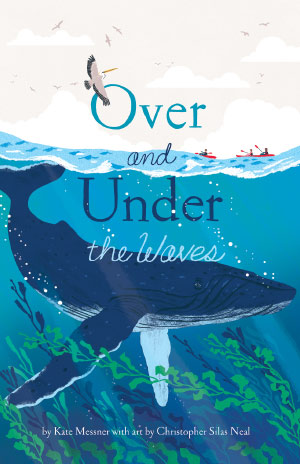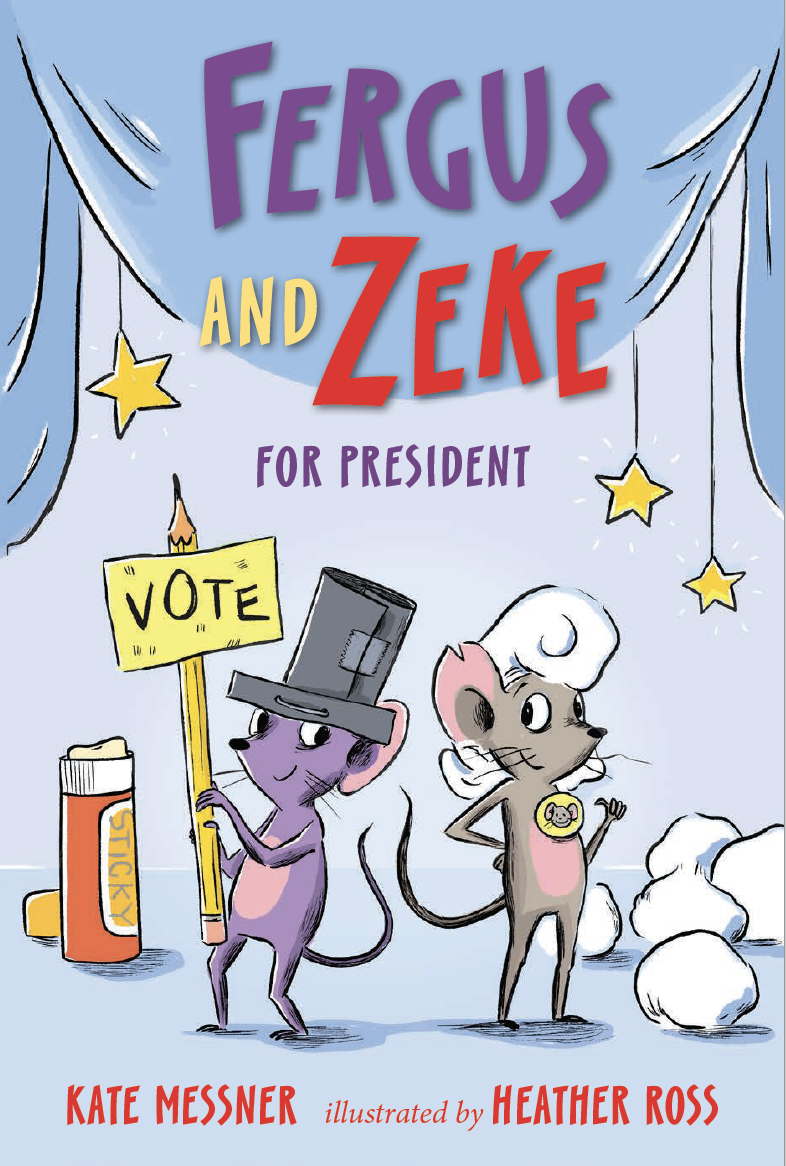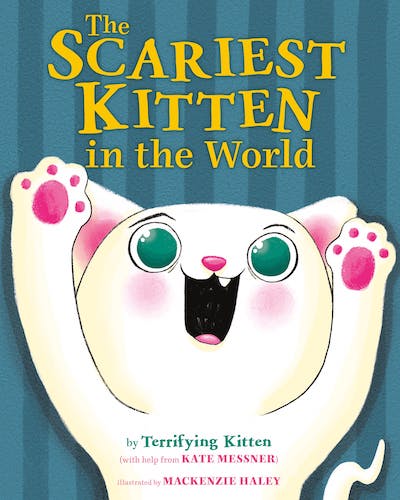Good morning! It’s Q and A Wednesday – a chance to ask your questions about writing to an all-star cast of author volunteers. This week’s guests are David Lubar, Nancy Castaldo,and Phil Bildner!

![]()

Teachers & librarians – Feel free to ask your questions in the comments. It’s fine to ask a general question or to direct one directly to a specific guest author. Our published author guests have volunteered to drop in and respond when they can.
Guest authors – Even if today isn’t a day you specifically signed up to help out, feel free to answer any questions you’d like to talk about. Just reply directly to the comment.
Got questions? Fire away!





Hello everyone! Thanks for all the support! Do you have advice for really connecting with the characters that you are writing? Do you do anything special, some kind of writing prompt maybe that gets you into the head of those characters? Thanks!
Hi Jen…
I take a variety of approaches when “building characters.”
Lately, I’ve taken to creating character profiles. With each character, I list what they look like, what they wear, who they live with (building those characters as well, even if they don’t appear in the book), and name their favorites — food, music, books, websites, hobbies, subjects, etc.
To create voice, I always need to say the character’s lines out loud. It also helps me make sure I don’t confuse character voices.
And finally, I constantly refer to Kate’s book, Real Revision. Yes, I know this is her blog site, and it sounds like I’m just trying to “say the right thing,” but that’s not the case. It truly is a great resource.
When I really need to get into a character, I have the other characters each write a short essay about her.
Jen, getting inside the head of a character is one of those things that happens to me as I write the story, so it’s not something I prep for. Usually, my characters have one characteristic that stands out to me most at the beginning and I sort of build them around that. Often, I have to go back and layer in more details as I get to know her–it’s a very messy process and probably not the most organized or efficient, but it’s what (sort of) works for me.
Good morning! Thanks, Jen, for your question and for starting our conversation this morning.
When I am working on a book, whether nonfiction or fiction, I love to surround myself with things that help me keep my characters/my subject in my head.
As far as a writing prompt that helps get into a character’s head – I like to imagine the place my character sleeps. I not only think about what might be in their room, but also what they might see out their window.
When writing nonfiction books, how do you spend your research time (what sort of sources do you use, do you conduct interviews, etc.)?
Hi Ericka! Research is fun! Yes, I do it all — interviews included. I usually start by taking a look at what’s already been written about my subject and then I spend a considerable amount of time finding my own hook – how will my book be different — what hasn’t been said already –
I then become a specialist in that subject, which is part of the joy of writing nonfiction for me. Interviews are like gold. They bring personality and expertise into work of nonfiction. What I love even more is getting my hands into whatever I’m writing about so that I can have a firsthand experience with my subject.
Thanks for your question!
Hey Ericka…
When writing non-fiction, I love talking to people. Often times, they point you in directions I wouldn’t ordinarily go.
Generally speaking, my research begins on my laptop in my apartment. From there, I go out into the world.
If I may chime in on the research question–I love Facebook for research! It’s been an amazing way to reconnect with people from my past who are now experts in all sorts of cool fields. For instance, an old college acquaintance is now a professor of Evolutionary Biology at Harvard and I email the poor man constantly. Another college friend is an infectious disease specialist. I sent him a ten page, single-spaced document full of queries for my book-in-progress. How happy THEY must be to have reconnected with me! (I’m being facetious, but I do recommend plumbing your past–amazing how many people you might know are experts to interview!)
Good Morning! Thanks for all your great advice, in advance 🙂
I have separate questions:
David- I liked the literary index on your blog. Is this something you do as a author, or do the publishers wave a magic wand, and create an index like that? Something tailored to teachers like that index helps us in the classroom so much, and I really appreciate your hard work.
Nancy- I really love reading the links that authors post on their websites and blogs, like your link to Debbie Michiko Florence’s interview page. When I first started reading blogs a long time ago, I noticed Cynthia Leitich Smith also does this well. How does an author approach other authors for possible interviews? Interviewing is an important skill, and this is something I practice with my students. Now, there are many resources on the internet that we use for author interviews/author studies….it’s great!
Phil- Just glancing at your website, I notice your “hot buttons”. Is this something that can only be done on a website, vs. a blog site?
Lastly, for all 3 of you. Is there a reason to use Livejournal over Blogspot? I use blogspot for my school blog, and my author blog because it is easy to set up. I just wondered why (it seems) many authors use Livejournal.
Thanks for your time!
Andrea — thanks. I’m glad you like the index. Here’s the ugly truth — I am a terrible procrastinator. When I have serious work to do, I can get totally absorbed in any sort of distraction, from writing a satirical song that pops into mind (look for “Common Core Tedium” on Youtube for an example of this) to researching the best brand of pen. After seeing a lot of requests on listserves for a story about a specific topic, it hit me that I needed to make a Weenies index. It was my idea, my work, and my favorite form of procrastination for several months. It is possible my publisher would have offered to provide help, but I really wanted to do it myself.
Thanks for the response and I look forward to seeing your song on youtube!
I must admit, Andrea, I find it challenging to keep up my blogs and write and teach, but I do love to interview authors about their work. I love hearing the stories behind the stories. When I do get around to conducting an interview I usually drop an email to an author through their website or a personal contact and request an interview. Most often I have already become fascinated with their book and am as interested as any other reader to know the backstory.
Nancy,
Thanks for the information on interviewing. And, for the other responses on non-fiction writing. Very helpful 🙂
First, what a cool opportunity! Second, what thoughts could I pass along to teen writers? How would you suggest they be directed in the craft of writing? Or, when you look back, what in formal writing education helped/hindered you?
I had a fantastic high school teacher who encouraged me to write poetry and submit it to contests, etc. One of those poems ended up in Seventeen Magazine – my first published piece!
Encouragement is always important.
When I work with teens, I always suggest they keep a journal and write down EVERYTHING. Poems, song lyrics, quotes, stories. It’s great to have a space where they can let their imagination wander. And, of course, READ! Every writer needs to read.
What environment do you write in? Music on? Shut in a closet? Lots of snacks handy? I’d love to share with my students to help them as writers. Many thanks.
I love this question!
Sometimes I need it to be completely quiet. Other times, the music is going (like right now — Jay Z), the television is on, and I have six or seven tabs open in my browser.
I like to write in different places. I write in my apartment, on the subway (great for people-watching), and outside on the roof deck.
Finally, when I’m doing late-stage revisions, I need to read my work out loud. I’ll even play dress-up when I do that!
Phil – Thanks. I’m now plotting to have my students dress up! Thanks again for your time.
Like Phil, I often write in different places. These days I’m usually outside near my pool with my big dog! I don’t eat snacks while I’m writing, but I love to reward myself with a piece of chocolate when I’m finished!
Nancy – Chocolate! My students will have you to thank for more post-writing treats! I’m thinking of it as an occasional way to bring out the fun of writing. Thanks for sharing some of your writerly life!
Rewards can be fun. I like to reward myself every step of the way – including when I finish a chapter or send off a proposal. The reward isn’t always chocolate – sometimes it might be a hike in a nearby nature preserve or tea with a friend. I always believe that it’s important to set goals and acknowledge those accomplished. Plus it adds fun to a solitary business!
Kim — I tend to keep one CD in the player for months, if not years. Currently, I’m listening to Tab Benoit’s Fever for the Bayou. I’ll also listen to Bach, Vivaldi, or Doc Watson. Sometimes, I can only listen to instrumental music. (I think that the familiarity of a CD that I play repeatedly, like Tab Benoit’s, helps keep the words from being a distraction.) I am constantly interrupted by cats. I am occasionally interrupted by the delivery of an unexpected but much appreciated snack. However, I think it is important to also let your students know that each writer’s process, as far as things that are removed from the actual mechanics and art of writing and revising, is an individual preference that should not be seen as a means to an end. Questions about personal habits as part of the process always make me think of the great Borges story, “Pierre Menard, Author of the Quixote,” about a man who tried to recreate the writing of that book.
David – Thanks. I appreciate your idea that there isn’t an environment “formula.” I think the responses you all offered demonstrate that, and I’ll be sure to share that, too. Writing in school is so different from writing at home, and I want to use some of the ideas here to help students get in “the zone” as much as possible at school. Thanks again for your response..I’m off to find the Borges story.
Kim — during Q&A sessions, students often try to trick me into proving that the methods they are learning are “wrong” by asking process questions such as, “Do you pre write?” I let them know that it is essential to learn the basics by way of a defined process, and then, after they’ve mastered those basics, they can branch out and discover what else works for them. (Translation — I always have the teacher’s back when this comes up.)
This made me smile. Thanks for taking the time to figure out what they -and we teachers -need to hear.
Hi Kim, when I write, I need quiet. Background noise, like my husband’s tv in another room, is okay (though a cat licking himself behind me is NOT), but I can never write while listening to music. That said, sometimes, to set a certain mood, I’ll listen to specific songs before I start writing. I pretty much always write at my desk in my spare bedroom–I’m too distracted to be one of those people who can write in a cafe or other public places.
Joanne – Thanks. I know there are students who feel this way, too, and will be glad to hear your take on this. I need quiet, too, by the way. I appreciate your thoughts.
Hi Andrea…
My website is my main source of advertising and promotion. When I transitioned from teaching to writing full-time, I made the decision to really invest in my website. It wasn’t an inexpensive decision, but it was definitely a worthwhile one. Skytemple (http://skytemple.com/) hosts my site. They do a terrific job. The prominent placement of the “hot buttons” was a recent addition.
As far as blogging goes, I don’t blog nearly as much as I used to. I’m on LiveJournal because that’s what I used to use. If I ever started blogging more, I would probably switch over to another service.
Phil,
Thanks for your answers and the information about website. I’ll look into sky temple…
Hi, everyone.
My question is for anyone.
What impact has the adaptation of the Common Core (and its emphasis on nonfiction) had on your approach to writing fiction?
Thanks.
Wendy,
It’s funny, my colleague and I were just discussing this today. This has also been a topic of discussion in my local writers group.
As a teacher, I still believe that kids can learn factual information from reading a great story. Look at Linda Sue Park’s book Long Walk to Water. I presented a whole visual literacy lesson to build background knowledge about Sudan, the people, and its geography. We read non-fiction excerpts about life in refugee camps. The kids seemed to be more interested in reading this compelling fictional story and learned more about a foreign culture in the process. Historical Fiction serves the same purpose, if you can incorporate non-fiction short texts. (I’ve used Kate Messner’s Spitfire before, too)
We also found a new book that paired several poems with a brief non-fiction piece that explained the theme of the poem on that page. These poems were quite inspiring and short enough for read alouds in the classroom.
Not sure if that answered your question exactly, but I hope it helped.
Hey Wendy…
None!
With that said, I did spend a good deal of time this summer re-visiting my books that are already out. I’m in the process of enumerating the CCSS that can be covered using those titles. In addition, I visit a lot of schools during the year. I’m currently creating a tip sheet for that list the CCSS author visits can address.
Thank you for your comments. I wondered if fiction writers freaked out as they learned about the CCLS, or if they just went on as usual, maybe developing study guides to go along with the novels. I actually had an administrator tell our group the other day that kids won’t have time to do independent reading (!) and that we librarians aren’t allowed to purchase any fiction for the next two years unless the titles are “hot” ones that the kids are clamoring for. This is very short-sighted of her, and she has no idea what’s she’s talking about. Kids who want to read will always find a way. I do worry about the ones who are a bit more reluctant. Thanks again.